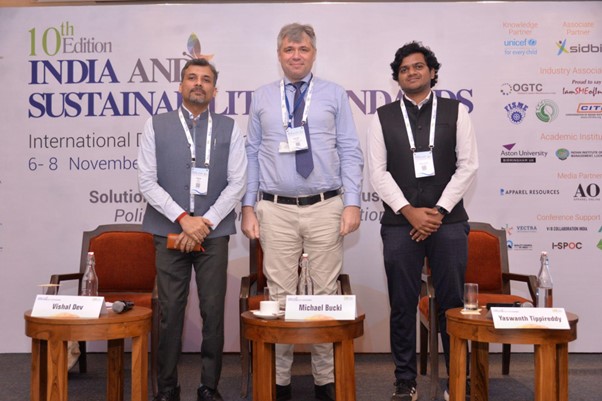Partnership with WWF-India
Industry & Policy Engagement on Deforestation-Free
Edible Oil in India
Background
Demand for commodities linked to forests has steadily increased in India. Consumption of vegetable oil, timber, pulp and paper, etc. has grown due to a number of reasons from fast-changing consumer preferences, to lifestyle patterns and cut-throat competition in the food industry.
Palm oil is well established as an essential ingredient in many FMCG products, personal care items, cosmetics, etc. India is the second largest consumer and largest importer of palm oil with the volume of imports in 2022-23 being 7.11 MMT[1]. There has been a consistent increase in the quantity of domestic consumption of palm oil and the trend is expected to continue as per industry estimates.
Overview
Ongoing Project (2023-24)
Objectives
The aim of this year’s partnership will be to highlight the need and identify opportunities from a balanced approach towards meeting the growing demand with little or no negative impact on forests and landscapes.
- Engagement with state governments on National Mission on Edible Oils- Oil Palm (NMEO-OP)
- WWF Session at CRB Annual Sustainability Conference-India and Sustainability Standards (ISS) 2023
- Establishing Policy Advisory group under I-SPOC
- Business Engagement (Financial Institutions, retailers and e-commerce)
Description of Activities
- CRB will engage with the Department of Agriculture/Horticulture and will be working towards capacity building and awareness generation of the relevant stakeholders. CRB aims to bring together stakeholders on one platform to further initiate dialogue on sustainable palm oil and integrating sustainability into domestic production of oil palm.
WWF- India hosted a session on ‘Aligning sustainability to the policy landscape for soft commodities’ at ISS 2023. The session aimed to look at sustainable supply chains through the lens of international legislations, actions undertaken by Government of India and Global South and implications for the private sector and possible solutions to address the challenges.

CRB and WWF will identify and engage with relevant stakeholders to take conversation on uptake and opportunities related to sustainable palm oil forward.The group will discuss relevant policy issues and come up with a set of recommendations to central and state governments.
CRB and WWF will engage financial sector practitioners and e-commerce businesses to organize capacity building workshops on climate risk mitigation in agri-finance.
Past Project
Objectives
This partnership focused on engaging the industry and related stakeholders on sustainable commodities’ value chains (especially in an edible oil) consisting following broad areas:
- Partnership with Industry Associations/Actors
- Engaging Retailers, E-commerce companies and Financial Institutions
- Policy Roundtables
Description of Activities
- WWF-India hosted a session with CRB on ‘Incorporating Responsible Sourcing in Retail Supply Chains’ at the Retailers Association of India’s (RAI) annual leadership event Retail Leadership Summit (RLS 2022) in Mumbai from 27-28 April, 2022.


- WWF along with the CRB represented The Sustainable Palm Oil Coalition for India (I-SPOC) at the India Food Forum 2022 held at Westin Mumbai, Powai Lake from December 7-8, 2022.


- WWF-India hosted a session on “Exploring International Collaboration among G20 Members on Deforestation Free’ Commodity Value Chains’ at CRB annual sustainability conference – ISS 2022
Click here to view Session Summary Report

CRB initiated engagement withFinancial Institutions to create awareness on sustainably sourced commodities especially those linked to deforestation.
- Stakeholder Consultation: I-SPOC organized a ‘Stakeholder Conclave on Sustainable Palm Oil’ on May 24, 2023 in New Delhi to identify methods to integrate sustainability to the ongoing domestic production of palm oil.
Click here to view the Summary Report.








































































































